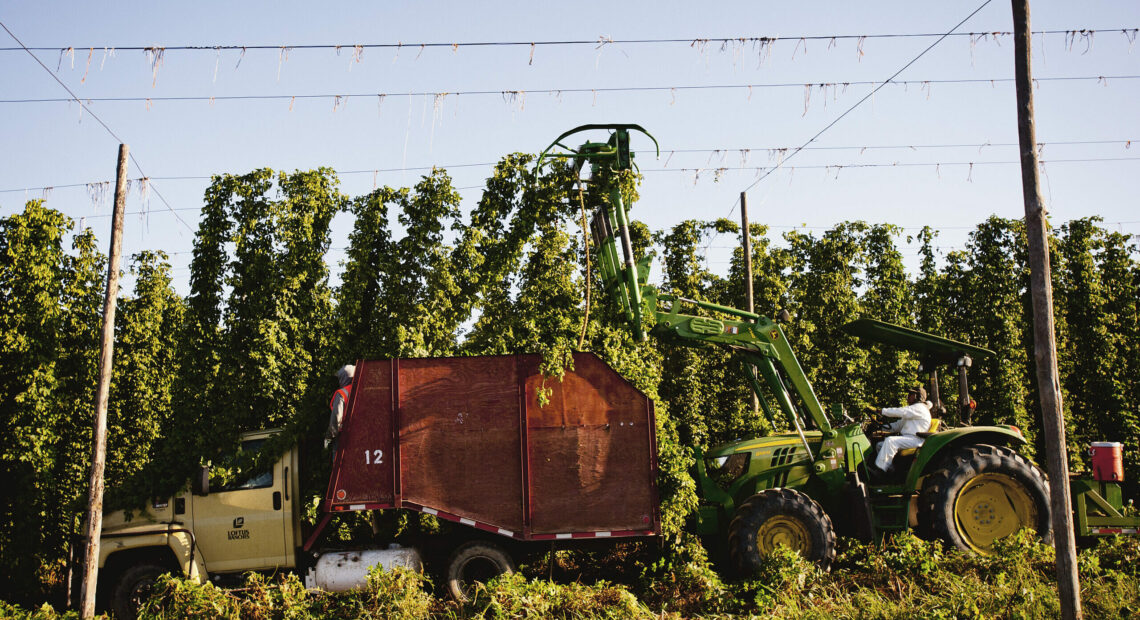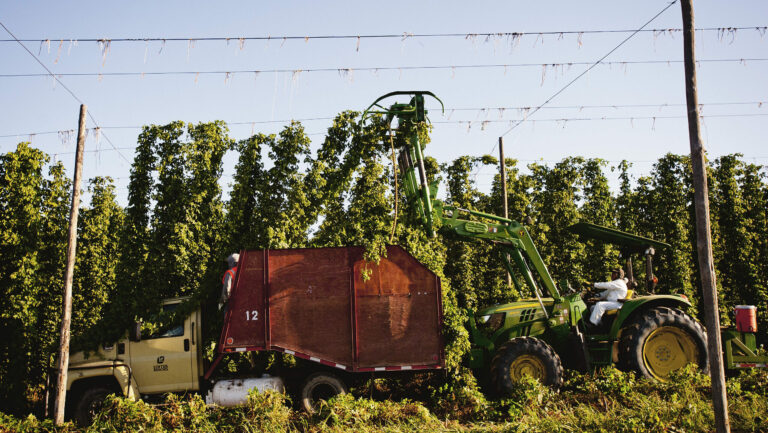
Immigration is tied to food security, farmer says, and food security is tied to national security
Patrick Smith of Loftus Ranches relies on temporary workers to tend his crops. Immigration policy has broad impact, he says.

Read
By Kai Ryssdal and Sofia Terenzio, Marketplace
Listen to “Marketplace” each weekday at 3 p.m. on the news service of NWPB. This story originally aired on “Marketplace” on Jan. 22, 2025.
This week, President Donald Trump signed a slate of executive orders aimed at cracking down on immigration. These orders will likely have ripple effects on both authorized and unauthorized migrants to this country. One sector that reforms will likely impact is agriculture, which relies heavily on an immigrant workforce.
To get a glimpse into what Trump’s immigration policy might mean for farmers, we called up Patrick Smith, CEO of Loftus Ranches, an apple and hops farm in Yakima, Washington, which relies on the labor of H-2A visa holders. “Marketplace” host Kai Ryssdal spoke with Smith about the future.
The following is an edited transcript of their conversation.
Kai Ryssdal: First things first, I suppose. How’s business at Loftus Ranches?
Patrick Smith: Business is good. You know, agriculture, of course, is very cyclical, and both hops and apples, our two primary crops, are in a little bit of a down cycle right now. But, you know, we’ve got a great team here, and we’re focused on the things that we can control. And, yeah, we’re making our way through it.
Ryssdal: Fair enough. Let’s talk about some stuff you maybe can’t control. Here’s my question. First of all, what’s your labor situation right now? Are you getting all the H-2 visa people that you need, and secondarily, how much is it costing? It’s got to be really expensive.
Smith: Yeah, so we are fortunate that the H-2 visa program does give us the availability of labor that we need to get the job done. As you allude to, the difficulty is that the cost, you know, continues to escalate even faster than inflation, and that represents a significant real cost increase.
Ryssdal: What I hear you saying is that your margins are getting really thin.
Smith: Yeah, correct. So the Northwest Horticultural Council trade group here commissioned a study recently about Washington apple growers’ labor costs over the past decade. And in 2023 Washington apple growers spent 99% of their revenue on labor, so that 1% doesn’t leave much for fertilizer and taxes and water and fuel for your tractors, things like that. And so yeah, margins are getting squeezed. In comparison, in 2013 labor was about 37% of the, like, per-bin revenue that apple growers received.
Ryssdal: You don’t need me to tell you this, but having 1% left over is not a way to run a business model.
Smith: No, and like we’ve talked about before, farmers are price takers. We don’t set the price of apples, and in an economic environment and political environment where inflation is really the driving force in elections and, you know, household budgets, it’s really hard for us to manage, and, you know, not pass on significant cost increases that consumers would see in the grocery store.
Ryssdal: It’s tricky to know what the new Trump administration is going to do on immigration before they actually do it, but they’ve started some crackdowns, and obviously, crackdowns will not happen to H-2A workers because they’re legally sponsored by you. But it’s possible that this administration is going to decide that even legal immigration is not something that it’s interested in.
Smith: Yeah, absolutely. You know, farm labor and a secure source of farm labor is more than just important to employers like us. Food security is an important, you know, part of national security. It’s also an important trade bargaining chip in that American agriculture is a net exporter, and if legal immigration is constrained through policies of Trump administration, that has other implications beyond just how it affects farmers.
Ryssdal: I know I ask you this pretty much every time, and I can never remember. You’re the fourth generation, right, of your family to be on this farm?
Smith: Yeah, correct.
Ryssdal: All right. And you and your siblings and the rest of your family have expanded. You have a brewery now, you’ve got Loftus Labs, which is sort of an analytics and data thing. So you’re clearly expanding. How old are your kids now, Patrick?
Smith: I have three kids. They are 14, 8 and 4.
Ryssdal: Fourteen, so not too far from deciding what that kid is going to do. Do you imagine they’re going to be generation No. 5 at the farm?
Smith: I certainly hope so. If we do our job well, the farm hopefully will be there for them to at least have the decision whether they want to come back to it or not. You know, I certainly hope that we pursue smart immigration and trade policies that benefit farmers as well as, you know, the nation as a whole.















